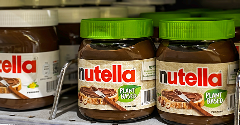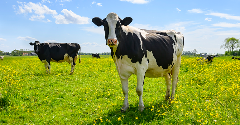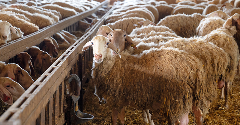News
Arla Foods to shed up to 400 jobs
1 Jun 2018Arla Foods has announced changes to a number of its corporate Group functions and to its cheese production that could see up to 400 jobs eliminated.

Arla Foods has announced changes to a number of its corporate Group functions and to its cheese production and logistics in the UK as part of the ongoing internal transformation programme.
Earlier this year, farmer-owned Arla Foods launched a three-year programme to achieve 400+ million euro savings and efficiencies and transform Arla Foods into a stronger and more competitive company. The programme, called Calcium, aims to reshape Arla’s organisation to focus even more on the frontlines of the business, where the value exchange takes place with customers and consumers.One of the requirements to achieve this is the streamlining of the company’s corporate operations and support functions. This process has now begun, starting with global functions such as Finance, Legal & IT, Corporate Strategy, Member Relations, HR & Corporate Affairs.As a result of the changes announced, 195 positions are expected to be made redundant across the affected corporate support functions. The impact is predominantly at the company’s head office in Aarhus, Denmark, however with smaller numbers of positions affected at the company’s administrative offices elsewhere in Europe.Arla has also identified what it says is a substantial opportunity to optimise its cheddar cheese production as well as improve efficiencies consolidating operations across its production and packing sites, where it currently has capacity which is not currently being fully utilised.Arla is announcing a proposal to cease production at its Llandyrnog creamery, consequently moving cheddar cheese volumes to its Taw Valley and Lockerbie creameries. In addition, Arla is proposing the integration of all its cheddar cheese packing lines into its Oswestry packing facility, which will result in the closure of its smaller Malpas and Lockerbie packing operations.The proposed consolidation, subject to the completion of the consultation process, could put around 154 roles at risk of redundancy by the end of 2018.Over the next three years, the company believes that the Calcium programme will transform activities throughout Arla, including production, products, procurement, promotional marketing and people. The programme is running at a time when Arla is facing two unique external challenges as a result of the extent of the company’s exposure to the British pound and unfavourable developments in commodity markets.“We want to achieve the goal of building a stronger, more competitive Arla, which serves our customers and consumers better and provides higher returns to our farmer owners and that requires us to make tough decisions. In order for Arla to continue to deliver on our Good Growth 2020 strategy that brings innovative dairy products to millions of consumers around the world, we must become one of the most agile and frontline-obsessed companies in today’s fast-paced and complex global food industry,” said CEO of Arla Foods, Peder Tuborgh.“It is never easy to say goodbye to valued colleagues, especially in these circumstances, and I would like to thank those people who are leaving us for the contribution they have made to Arla Foods, and I wish them well for the future. We will provide our full support to those colleagues affected during this process.”With the Calcium programme still in its early stages, Arla says it is too early to disclose what the specific consequences will be within other specific areas of the company, including the total number of jobs that will be added or removed by the ongoing work, however the company expects the net number of positions to be lower. Arla says it expects to communicate openly about the process over the course of the programme.Related news

Simplifying food labels with EUFIC’s interactive tool
16 Dec 2024
The European Food Information Council (EUFIC) hopes to turn consumer confusion into clarity with its new interactive online resource for healthier food and beverage choices.
Read more
Consumer awareness and transparency key factors in shift to natural-based emulsifiers
11 Dec 2024
The demand for natural-based emulsifiers in the food industry is surging as health concerns over the use of synthetic emulsifiers have consumers looking for alternatives.
Read more
Protein-boosted ready-to-drink beverages expand beyond shakes
26 Nov 2024
Diets such as keto or Atkins may have paved the way to promote a higher protein intake. Now, the high-protein trend has gone mainstream, penetrating the ready-to-drink-beverage market.
Read more
Dutch initiative to reduce supermarket waste claims ongoing success
6 Nov 2024
Food waste in Dutch supermarkets continued to fall, registering a total reduction of 35% since monitoring was introduced by the Food Waste Free United Foundation and the Wageningen University & Research in 2018.
Read more
Africa balances policy needs with food processing growth
1 Nov 2024
Opportunities ramp up in the continent’s food processing industry, yet a lack of policy progression threatens to stall progress.
Read more
Ferrero updates Nutella brand with new plant-based version
24 Oct 2024
Ferrero has launched a plant-based version of its Nutella brand, which adds chickpeas to its formulation in a move designed to appeal to growing numbers of vegan consumers.
Read more
Danone removes NutriScore from products
20 Sep 2024
Following an algorithm update that gives some of its sweetened drinks a worse score, Danone has removed the front-of-pack label, NutriScore, from all of its products – putting profit before public health, say campaigners.
Read more
Chobani develops shelf-stable, prebiotic-enriched Super Milk
12 Sep 2024
Chobani has launched a prebiotic-enriched, shelf-stable, high-protein dairy milk to support people in disaster zones who need a nutritious drink that does not require refrigeration.
Read more
Tesco trials methane mitigation supplement for dairy cattle
5 Sep 2024
Tesco is trialing a methane-reducing feed supplement for one of its key UK dairy farms, sustainable UK milk producer Grosvenor Farms.
Read more
Sheep and goat plague: A new threat to Greece’s feta production
27 Aug 2024
A recent goat and sheep plague outbreak threatens feta production in Greece. The flagship product accounts for roughly 10% of the country’s food exports, but Greek authorities say there is no cause for concern.
Read more